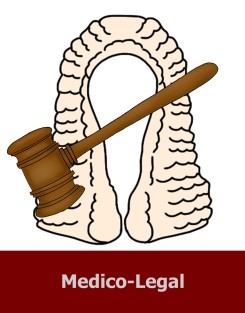We can help with...
Anxiety
Everyone experiences feelings of anxiety during some point in their life. Anxiety is a feeling of unease such as worry or fear; this can be mild or severe. You may feel anxious about a job interview or exam and whilst this feeling of being anxious is normal, some people may struggle to control their worries. Anxiety can cause both psychological and physical symptoms such as restlessness, lack of concentration, worrying or trouble sleeping.
Stress
Stress is the feeling of being under too much psychological or emotional pressure. When we are unable to cope, this pressure turns into stress. Life demands such as moving house, financial matters or relationships may cause stress. Stress can affect how you feel, behave and think and may also affect how your body works. Common signs of stress can include, loss of appetite, trouble concentrating, muscle tension or sleeping problems.
Depression
Depression affects people in different way and can cause a wide variety of symptoms. There vary from lasting feelings of sadness and hopelessness to losing interest in the things you used to enjoy. Physical symptoms of depression may include fatigue, loss of appetite, increase in appetite or lack of sex drive.
Bereavement
Losing someone very important to you may make it difficult for you adjust to the major changes happening in your life. Grief can manifest itself in a variety of ways such as anger, denial, depression or withdrawal. The bereavement period can be a confusing time involving a whole host of powerful emotions. These emotions may change overtime or shift during the grieving process. Not everyone will experience the same stages of bereavement at the same time.
Autism
Autism is a lifelong developmental disability that affects how a person communicates with and relates to other people. This condition also affects how one perceives the world. Autism is a spectrum condition, which means that whilst all people with autism share difficulties, their condition will affect them in different ways. People with autism may experience sensitivity to light, touch, colours and taste.
Relationships
Relationships play a meaningful role in everyone’s life and bring feelings of happiness and fulfilment. Strong relationships with friends, colleagues and family allow us to be at out healthiest and most productive. However fulfilling and supportive relationships require good social skills and a great deal of time and commitment. Sometimes meaningful connections can breakdown resulting in someone feeling lonely, disappointed, and unsure of what to do.
Post Traumatic Stress Disorder (PTSD)
Post Traumatic Stress Disorder (PTSD) is an anxiety disorder caused by very stressful, frightening or disturbing events. Types of events may include:
- Road Traffic Accidents
- Violence
- Abuse
- Military Combat
- Natural disasters
- Witnessing a traumatic event
PTSD can occur immediately after someone experiences a traumatic event or it can occur weeks, months or years later.
Abuse
Abuse can take forms in many ways:
Sexual abuse: forcing or pressuring someone to have sex (rape), unwanted sexual activity, touching, groping someone or making them watch pornography.
Emotional abuse: making someone feel bad or scared, stalking someone, blackmail, checking up on someone excessively or playing mind games.
Physical abuse: hitting, pushing, pulling, punching, kicking, choking or using weapons.
Financial abuse: taking money, not letting someone works, controlling finances.
Self Esteem
Self-esteem is the term used to describe the beliefs you have about yourself, how you perceive yourself, your beliefs, positive and negative attributes and your expectations for the future. If you have healthy self-esteem your beliefs about yourself will generally be positive. You may experience difficulties in your life but you will be able to handle them without them impacting negatively too much on your life. If you have low self esteem, your self-beliefs with often be negative. You will tend to focus more on the mistakes you have made or your weaknesses and may find it hard to recognise the positive traits of your personality.
Confidence
Self-confidence is extremely important in almost every aspect of our lives, yet some people may struggle to find it. Unfortunately this can be a vicious circle; those who lack self-confidence may find it difficult to be successful. Levels of self-confidence can show in many ways; your behaviour, the way you speak and body language. People with low self-confidence may govern their behaviour based on what others think. They may stay in their comfort zone, fearing failure, so avoid takings risks.
Bullying
Bullying is unwanted, aggressive behaviour that involves a real or perceived power imbalance. This behaviour is repeated or has the potential to be repeated over time. There are many types of bullying:
Physical: hitting, tripping, pinching, kicking, and damaging property.
Verbal: name callings, insults, intimidation, homophobic remarks, racist remarks or verbal abuse.
Social/emotions abuse: actions designed to harm someone’s reputation or cause humiliation, lying, spreading rumours, embarrassing someone, encouraging social exclusion.
Cyber bullying: taunting or humiliation through social media sites (e.g. Facebook or twitter) or over the internet via chat rooms, targeting specific people, instant messaging or texting or posting offensive, degrading photos of others.
Anger Management
Anger is a normal healthy emotion. Managing anger may be difficult to control for some people. There are many health issues related to anger such as high blood pressure, flu and digestive issues. Recognising signs of anger can help you to manage it in the long term and you look at ways you can manage anger more effectively.








